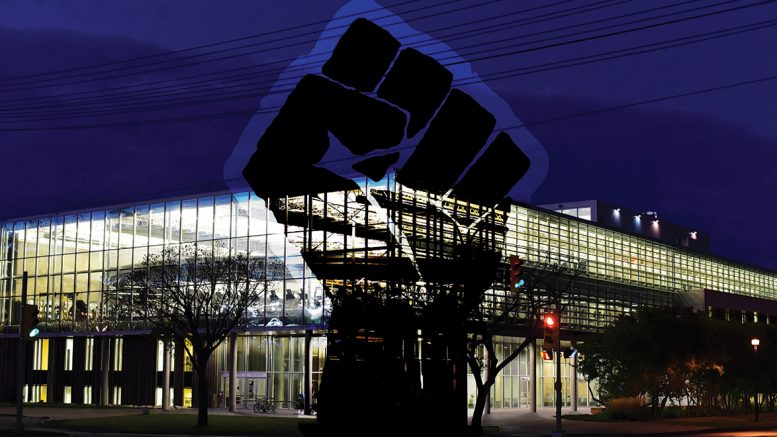Several universities across Canada have initiated exclusive gym hours for women and non-binary people in order to promote safer spaces on campus and equitable participation.
Recently, an initiative like this was put together at the University of Winnipeg by Jade DeFehr, the status of women director, and Jacq Pellend, the LGBT director. I was impressed not only with their dedication but with the direction they took towards this initiative, which included the creation of a comprehensive student survey.
In a recent article published by the Uniter, the U of W student newspaper, DeFehr was quoted while responding to criticism leveraged against instituting reserved hours as encouraging segregation.
“Lots of people started talking about segregation, which is a very racially charged term to be using,” said DeFehr. “Segregation is very different from safer spaces […] segregation is applied forcefully by the dominant group, whereas safer spaces are asked for by the people who are marginalized.”
DeFehr and Pellend’s drive is what has motivated me to propose this initiative at the University of Manitoba campus as well.
I am a firm believer in a safe space being initiated on campus permanently. I am also very enthusiastic about having that safe space be reserved hours for women and non-binary people at the gym. This is because the gym is considered a public space; in the U of M’s case, it’s a public space that every student on campus pays into through their tuition fees. Yet this particular public space is dominated by men, and even in this day and age, women are made to feel uncomfortable and basically not entitled to participate because of the overwhelmingly male presence. Because of this, an effort should be made to make the gym a more inclusive space.
However, the amount of time that is allotted for this group does not need to exclude others from using the gym for an entire day – it would only be for a few hours per week. This ensures that all demographics have more or less equal access to facilities we all pay into.
According to the U of M’s recreation services webpage, “The U of M recognizes the positive impacts of active living on students’ success, and it is the mission of recreation services to promote and create a culture of active living at the U of M. With the goal of creating a more vibrant, healthy, and active campus […] the U of M recently completed construction of a new 100,000 square foot Active Living Centre; this fee represents a contribution by students to the improvement of university infrastructures for generations to come.”
It is the U of M administration’s own idea to get as many students using the facility as possible to promote healthy living. If there are students who aren’t currently using the facilities, we should figure out why and try to make it more accessible as we are all contributing to the cost of said facilities. This will aid in creating a more “vibrant, healthy, and active campus” for all registered students regardless of race, class, sexuality, or gender.
Of course, this initiative will come with pros and cons. Pros will include more women and non-binary people feeling able to attend the gym, and by having a time where they do not feel a need to fight for their rights, these people may, in turn, feel more confident and empowered at other times. Some of the possible cons may be that reserved gym hours could draw attention to the problem at hand and this could cause backlash against these marginalized communities, resulting in worse behaviour at the gym in the short term.
With that being said, the Womyn’s Center coordinator, Taylor Byrnes, and myself would like to propose in the near future the creation of a similar survey to the one circulating at the U of W. We do this in hopes of progressing towards a goal to promote safer spaces and equitable participation for all U of M students.
Aly Raposo is a women and gender studies major at the University of Manitoba. She and Taylor Byrnes are currently creating and distributing a survey regarding reserved hours for women and non-binary people at the Active Living Centre.




